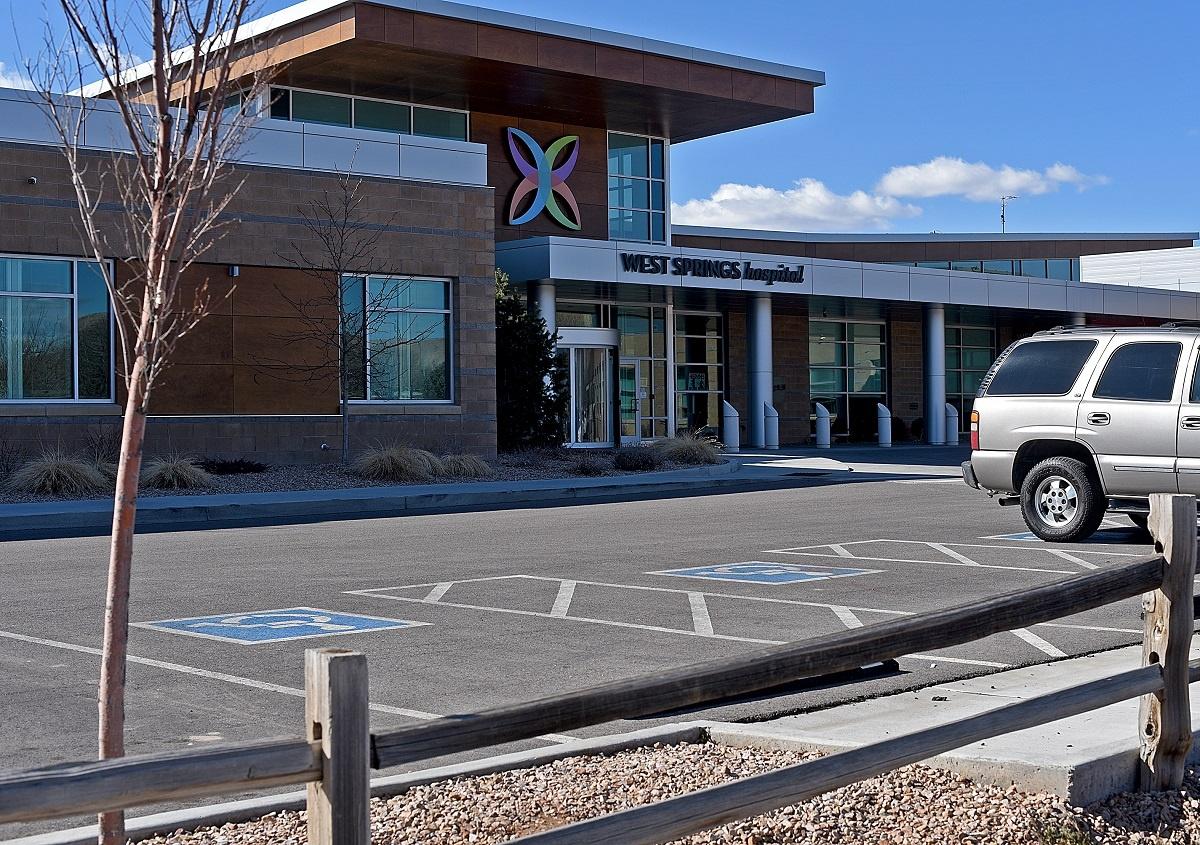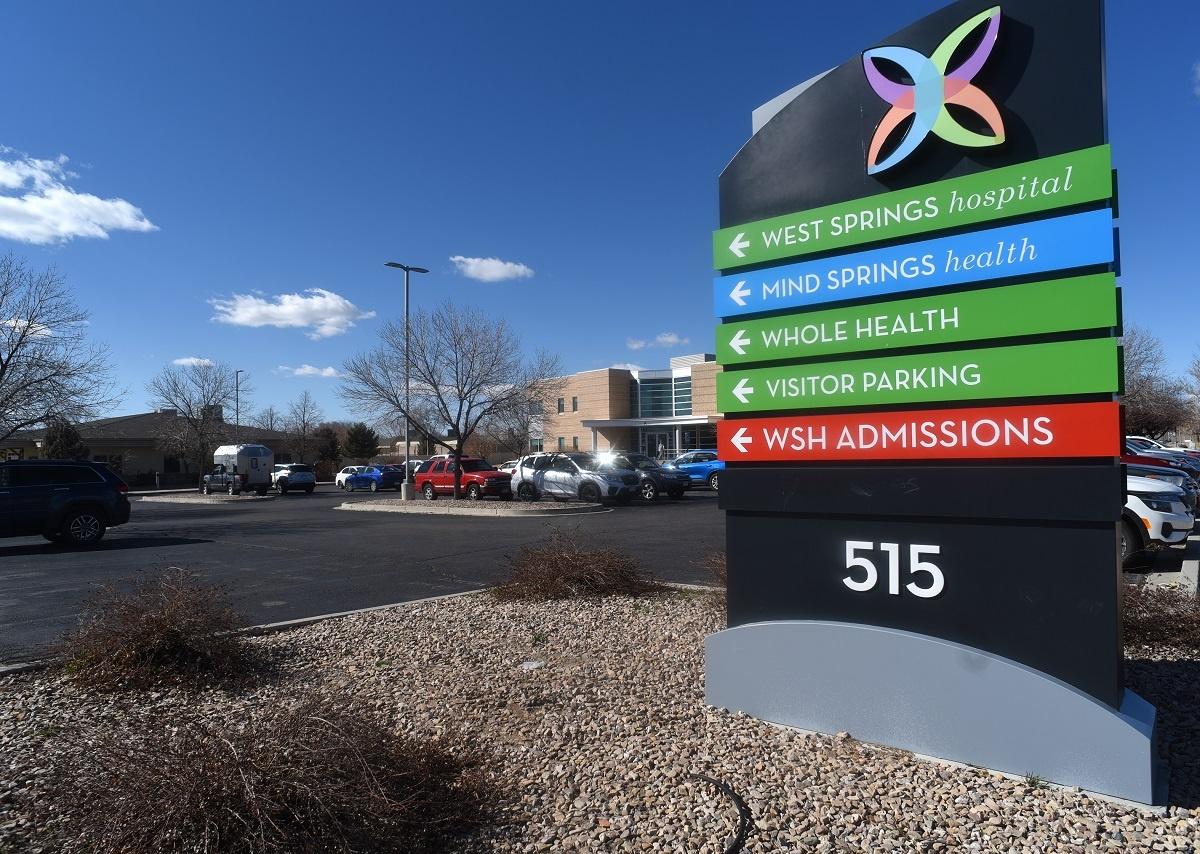This investigation is part of the ongoing "On Edge” series about Colorado’s mental health by the Colorado News Collaborative, the nonprofit that unites more than 160 communities and news outlets like ours to ensure quality news for all Coloradans. The series title reflects a state that has the nation’s highest rate of adult mental illness and lowest access to care, and the fact that state government is on the edge of either turning around its behavioral health care system or simply reorganizing a bureaucracy that is failing too many Coloradans.
Colorado’s new Behavioral Health Administration shut down part of the Western Slope’s only psychiatric hospital on Wednesday in response to complaints about the quality and safety of the care it gives teenagers and kids as young as seven.
Also Wednesday, the Department of Health Care Policy and Financing said it will withhold payment for any new Medicaid inpatients until investigators complete a review of safety concerns at West Springs Hospital in Grand Junction. That means Medicaid recipients on the Western Slope in need of psychiatric hospitalization will, at least for a few months, have to seek it in Denver, Salt Lake City or even farther.
West Springs is an arm of Mind Springs Health, the long-troubled mental health safety-net provider contracted with the state to serve residents of 10 Western Slope counties.
The Behavioral Health Administration’s cease and desist letter, served late Wednesday morning, ordered West Springs to stop using an old building north of and across a short walkway from its new hospital to house and treat inpatients. The order says two young patients escaped from Building D in early September – but fails to note they returned voluntarily within an hour. State investigators found patients still housed there as of Friday. The order also says the building contained unsecured cords and sharp plastic objects patients could use to harm themselves or others. Whether any patients did so is unclear as of this writing.
Mind Springs’ spokeswoman, Stephanie Keister, declined to answer questions about the order Wednesday. Her bosses had said Tuesday evening that about eight of the estimated 30 and 40 psychiatric patients hospitalized at West Springs were children and teens.
Wednesday’s cease and desist order comes 12 days after Mind Springs fired Dr. Frank James, a psychiatrist who had been serving as its latest chief medical officer, for what its employment lawyer described as “rude, insolent, harassing and offensive behavior toward fellow employees.” Two days later, sources in state government say, James filed a complaint with the Colorado Department of Public Health and Environment alleging West Springs has been compromising the quality and safety of care for inpatients who are teenagers and children.
State officials will not make the complaint or at least one other they allude to public or release details about them until three separate agencies investigate the allegations. And James, for his part, has not responded to three requests for comment this week.
Chelsea Arata, who worked for about six years as a psychiatric nurse practitioner treating young inpatients at West Springs and young outpatients at Mind Springs, says James effectively put her in charge of West Springs’ adolescent unit earlier this month. She believes at least one of the complaints to the state echos concerns she recently raised in meetings and emails asking for clarity and support about issues such as:
- Whether to admit children as young as seven years old to a psychiatric unit whose treatment programs, Arata says, are designed for teenagers. West Springs’ age-limit policy has often fluctuated, and recently prohibited admitting patients under 12.
- Housing younger children with sometimes violent or predatory patients 10 years their senior.
- Treating children with methods inappropriate for their age and conditions.
- The absence of clear protocols to protect patients from other patients’ violent outbursts – including an incident earlier this month when one teenager punched another in the face.
- Ambiguous protocols on how, if at all, to physically restrain young patients posing serious safety threats.
- Inconsistent policies on whether young patients segregated from others in the adolescent unit require constant, arm’s length supervision by a hospital staffer – including in the bathroom and shower – despite the risk of retraumatizing them.
Mind Springs fired Arata last Friday, she says in retaliation for the care quality and safety questions she was raising about young patients’ care. Her wife, nurse practitioner Raelynn Hilgenfeld, was escorted out of Mind Springs’ residential program earlier this year after blowing the whistle about potentially lethal prescription problems in its addiction program.
For his part, Mind Springs CEO John Sheehan said late Tuesday that West Springs is licensed to treat youth as young as age seven. He said he has never spoken with Arata and is not familiar with any concerns she raised about problems in the adolescent unit.
“I don’t believe there is any evidence that she was retaliated against in any way,” he added about her firing.
Rather, Sheehan said Arata “was terminated for directing a (nurse) on the unit to agitate a child so that child could be restrained and moved to another part of the unit” and then being “untruthful” about it. Mind Springs Chief Operating Officer Elizabeth Tice added that Arata failed to file “critical incident reports” about that teenager’s violent outbursts, as all Mind Springs employees have been instructed to do.
Arata countered there’s no evidence suggesting that such provocation actually happened and said administrators twisted the meaning of her comments about the patient and failed to give her and her colleagues clear, updated policies about how to handle violence by patients, including a 16-year-old recently punched in the face.
Since her firing on Friday, she said, “I have nightmares every night about my patients. I love these kids. I’ve been taking care of them for years. I don’t know what’s happening with them and I never will. I feel like a conspiracy theorist as I’m sitting here realizing …how they shape the narrative to justify firing me for” bringing problems to light.
Mind Springs Health is contracted with the state to serve people who are indigent, on Medicaid, or facing mental health or addiction crises in a 23,000-square mile area in Eagle, Garfield, Grand, Jackson, Mesa, Moffat, Pitkin, Rio Blanco, Routt, and Summit counties. It has 13 outpatient offices throughout the 10-county region in addition to West Springs hospital in Grand Junction.
Colorado News Collaborative reporter Susan Greene can be reached confidentially at susan@colabnews.co.





